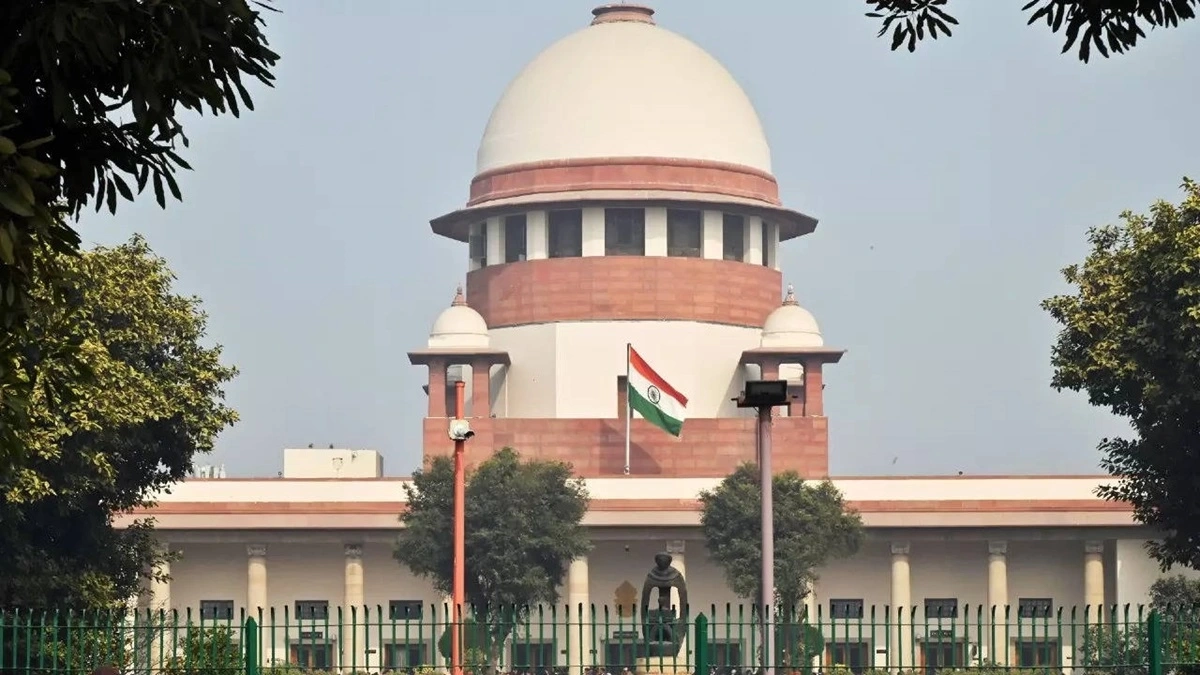JUSTICE (Retd.) K.S. PUTTUSWAMY v. UNION OF INDIA
(2017) 10 SCC 1
Court: SUPREME COURT OF INDIA
Bench: JAGDISH SINGH KHEHAR, CJI. JASTI CHELAMESHWAR, J. SA BOBDE, J. RK AGRAWAL, J. RF NARIMAN, J. AM SAPRE, J. DY CHANDRACHUD, J. SK KAUL, J. SA NAZEER, J.
Date of Judgment: 24/08/2017
Parties
Petitioner: JUSTICE(Retd.) K.S. PUTTUSWAMY
Respondent: UNION OF INDIA
Introduction
The petition was filed by a 91-year-old retired Judge of Madras High court Justice (retd.) K.S. Puttaswamy against the Union of India. The case was filed challenging the government’s Aadhaar scheme (a form of uniform biometrics-based identity card) which the government proposed to make mandatory for access to government services and benefits. The challenge was initially brought up before a three-judge bench of the Supreme Court on the basis that the scheme violated the right to privacy. However, it was argued by the then Attorney General on behalf of the Union of India that the Indian Constitution does not grant specific protection for the right to privacy. He based this on observations made in the case of M.P. Sharma v. Satish Chandra (A Supreme court judgement out of an eight-judge bench) and Kharak Singh v. Uttar Pradesh (A Supreme court decision out of a Six-judge bench). However, a subsequent eleven-judge bench found that fundamental rights were not to be construed as distinct, unrelated rights, thereby upholding the dissenting view in Kharak Singh. This also formed the basis of later decisions by smaller benches of the Supreme Court which expressly recognized the right to privacy.
It was in this context that a Constitution Bench was set up and concluded that there was a need for a nine-judge bench to determine whether there was a fundamental right to privacy within the Constitution.
Facts
- In 2012, Retd. Justice K.S. Puttaswamy filed a petition in the Apex Court challenging the constitutional validity of Aadhaar on the grounds that it violates Right to Privacy.
- On 11th August 2015, a Bench of three judges comprising Justices Chelameswar, Bobde, and C. Nagappan passed an order that a Bench of appropriate strength must examine the correctness of the decisions in M P Sharma v Satish Chandra, District Magistrate, Delhi, 1954 (8 Judge Bench) and Kharak Singh v State of Uttar Pradesh, 1964 (6 Judge Bench). In particular it ordered that the Court must decide whether we have a fundamental right to privacy.
- This matter was first placed before a 5 Judge Bench headed by the then Chief Justice Khehar. Subsequently, the matter was referred to a 9 Judge Bench on 18th July 2017. The Bench comprised Chief Justice Khehar and Justices Jasti Chelameshwar, S. A. Bobde, D. Y. Chandrachud, Abdul Nazeer, Nariman, R. K. Agarwal, Abhay Manohar Sapre, and Sanjay Kishan Kaul. Arguments began on 19th July 2017 and concluded on 2nd August 2017.
- The norms for and compilation of demographic biometric data by government were questioned as intruding upon the inherent right of Privacy.
Issues
- Whether right to privacy forms part of the Part III of the constitution of India.
- Whether the ruling in the case of M.P. Singh and Kharak Singh reflects true position of law on privacy.
Judgment
- The leading judgment is a tour de force, given on behalf of four judges by Dr D Y Chandrachud J.
- The bench unanimously turned down the judgments of M.P. Sharma and Kharak Singh [which did not recognized Right to Privacy as a Fundamental Right] calling it unconvincing because it wrongly concluded without examining the forte of right to privacy as an independent right.
- The bench declared privacy to be an integral component of Part III of the Constitution of India, which lays down our fundamental rights, ranging from rights relating to equality (Articles 14 to 18); freedom of speech and expression (Article 19(1)(a)); freedom of movement (Article 19(1)(d)); protection of life and personal liberty (Article 21) and others. These fundamental rights cannot be given or taken away by law, and all laws and executive actions must abide by them.
- Right to privacy was equated with the right to be or the individual existence, as opposed to non-social animals. It was quoted that, ‘The Divinity has given us and cannot be taken away with mortal power.’ Hence, privacy is not something that one is capable of giving—it is in existence already.
- Also, the words equality and liberty are complementary to each other and hence, right to privacy would, in a way, ensure Article 14 of the Constitution as well.
- However, the right to privacy is not at all an absolute right but a qualified one. It is always subject to the satisfaction of certain tests and benchmarks for which a person’s privacy interests can be overridden by competing state and individual interests.
- The Bench unanimously consented to include right to privacy under the ambit of Article 21 of the Constitution of India, holding that “All liberal democracies believe that the State should not have unqualified authority to intrude into certain aspects of human life—this authority should be limited by parameters fixed by the Constitution.”
Creating a landmark for the nation and its future, it was unanimously held by the 9 judge Bench:
- Right to privacy is fundamental right, an intrinsic part of Article 21 of the Constitution of India, however not absolute.
- The judgements of MP Singh and Kharak Singh cases stand overruled, so far as it is inconsistent to this judgement and its proposition.
Conclusion
The decision of the Hon’ble Supreme Court shall go a long way in establishing the correct proposition of fundamental rights, interpreting more rights and defining rights and liabilities in the modern jurisprudential aspect, a bulk of which shall be derived from the proposition laid down in this case.


Add a Comment